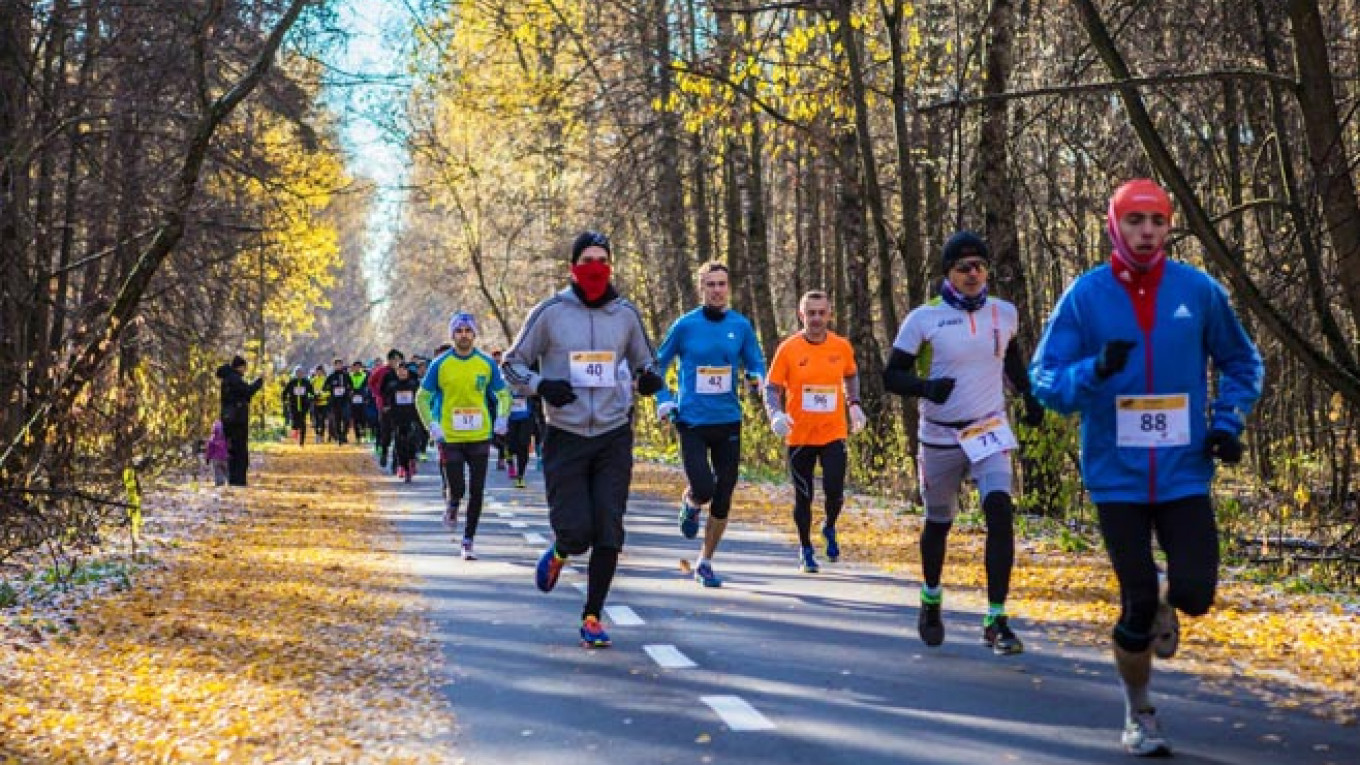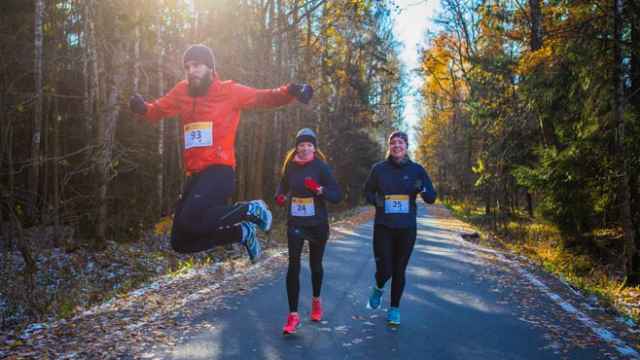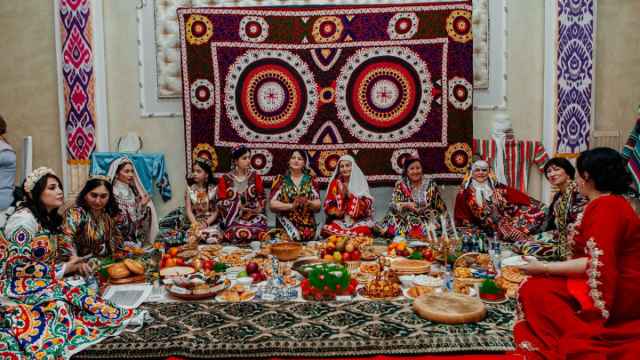Runners will hit the road on Sunday for the second annual Moscow Half-Marathon. The half-marathon, the second race in the Moscow Marathon series, is already the third major race to take place in the city this year, following the First Run 5K and the Spring Thunder half-marathon.
The Russian capital has experienced a running boom in recent years, so much so that the organizers of the Moscow Marathon series doubled the number of participant slots for all its races this year.
Vasily Kudrin, who organizes a Facebook group called Russia Run, said that although two big races, the Nike Women's 10K and the Color Run 5K, will take place on the same day — June 21 — there will be no shortage of demand for either race.
There are a number of reasons for the upswing in running, according to Daniil Mayorsky, who sets up races for the organization Dream Run.
"Nowadays it's hip to lead a healthy lifestyle. … The fashion to be healthy, which has been present in the West for 20 years already, has finally reached us," Mayorsky said, adding that initiatives from the local authorities to improve public spaces have also helped.
"It's very nice to see that the government is playing an active role in developing sport culture, at least in Moscow. Running paths are being built, as well as outdoor training facilities," he said.
Running clubs are also contributing to the sport's growth. Nike has been organizing running clubs in Moscow's parks since 2012, and this year Adidas Russia launched the "Awake the Suburbs" campaign. As part of the project, local amateur runners in 24 Moscow neighborhoods have agreed to organize regular running sessions and show newcomers the best local routes. The neighborhoods compete against each other and rankings can be seen on the campaign's website.
The purpose of the initiative, according to Adidas spokesman Nikolai Petrosyan, is "to inspire people to run in their own local neighborhoods," and show that "it's possible to do sports without paying for an expensive gym membership."
"More than 2,300 runners decided to 'awake their suburbs' in the first five days the campaign was launched," Petrosyan said.
Although anecdotal evidence from participants indicates that races in Moscow are dominated by younger men, race organizers are split on the subject.
Petrosyan said that in the First Run, which took place April 12, 1,394 men competed compared with 1,042 women. "The oldest athlete who took part in the Moscow Marathon in 2014 and finished was 79 years old," Petrosyan added.
More women than men have signed up for this year's Color Run 5K so far — registration will remain open until June 8 — while last year there were slightly more men participating.
The gender gap increases with the distance, however. In 2014, 3,497 men and 533 women ran the Moscow Marathon.
Dream Run's Mayorsky said that in the races his group organizes, which are generally at the 5K distance, the split is usually 70 percent men, 30 percent women, the majority in the 18 to 40 age range.
The increase in women running and in races is a notable trend, however, as indicated by Nike's decision to host its first women-only race in Moscow this year, with a cutoff of 5,000 participants. The company's Run Moscow 10K, which has been held annually since 2010, regularly attracts 10,000 runners. The organizers of the "Thunder" series of races also reached out to female runners this year with a 5K women-only race the day before the Spring Thunder half-marathon.
Another growing trend, according to Russia Run's Vasily Kudrin is charity races sponsored by amateur running clubs.
Dream Run is one example of this. On May 1, the group hosted the Smile Run to raise money for the charity Gift of Life.
Community group Patriki Daily in the Patriarch's Ponds neighborhood of central Moscow has also hosted several charity runs, the latest in April for a charity that helps children with disorders of the nervous system.
There is also a growing trend in Russia of people running races to raise money for charities on their own via crowdfunding campaigns. A group of runners from Moscow Bible Church is running the Moscow Half-Marathon to raise money for orphans with serious medical conditions and raising money via the church's website.
Running is useful for community building, according to Mayorsky. "When you're a runner you feel like you belong to a specific group made up of … positive, active, healthy people," he said.
The experience of Alyona Yevseyeva, Nike Running brand manager for Nike Russia in the first We Run Moscow race, left her with the same feeling.
"Very young men and women, students and schoolchildren, cadets and dance school kids, ran along the Kremlin embankment for the very first time. They sang songs, made friends, supported one another. … It made an incredibly strong impression, seeing the young people united like this."
A Message from The Moscow Times:
Dear readers,
We are facing unprecedented challenges. Russia's Prosecutor General's Office has designated The Moscow Times as an "undesirable" organization, criminalizing our work and putting our staff at risk of prosecution. This follows our earlier unjust labeling as a "foreign agent."
These actions are direct attempts to silence independent journalism in Russia. The authorities claim our work "discredits the decisions of the Russian leadership." We see things differently: we strive to provide accurate, unbiased reporting on Russia.
We, the journalists of The Moscow Times, refuse to be silenced. But to continue our work, we need your help.
Your support, no matter how small, makes a world of difference. If you can, please support us monthly starting from just $2. It's quick to set up, and every contribution makes a significant impact.
By supporting The Moscow Times, you're defending open, independent journalism in the face of repression. Thank you for standing with us.
Remind me later.






